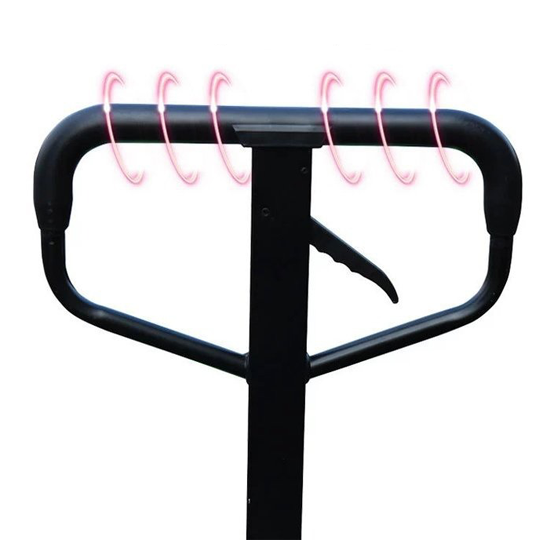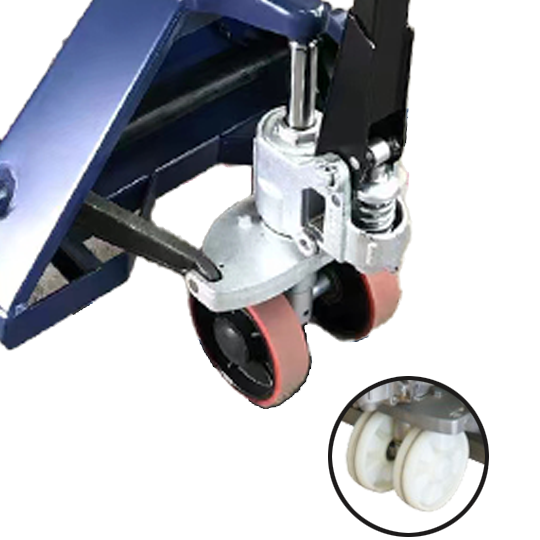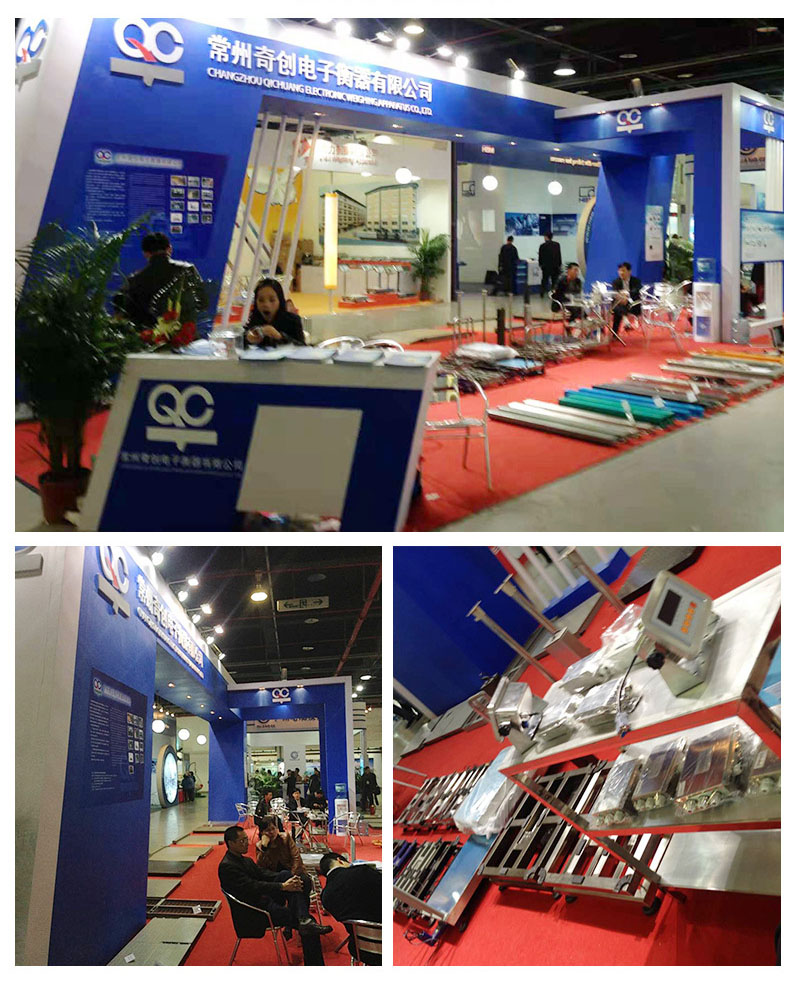Mobile Digital Industrial Floor Scale
QC Weighing
Carbon Steel /Stainless Steel
0.6X0.8M~1.5X1.5M,
0.3~2T
| Availability: | |
|---|---|








Mobile digital industrial floor scales are an essential tool for various industries. These scales combine the convenience of mobility with the precision of digital measurement, making them invaluable in settings where flexibility and accuracy are paramount. In this article, we'll delve into the benefits, key components, applications, and maintenance of mobile digital industrial floor scales.

One of the primary advantages of mobile digital industrial floor scales is their portability. Equipped with wheels or casters, these scales can be easily moved to different locations within a facility, allowing for versatile use. This flexibility is particularly beneficial in large warehouses, manufacturing plants, and other dynamic environments.
Digital floor scales offer superior accuracy compared to their analog counterparts. Features such as digital indicators, tare functions, and unit conversions provide precise measurements and enhanced functionality. These scales often come with connectivity options for data logging and integration with other systems, making them highly efficient.
Designed to withstand heavy loads and harsh industrial environments, mobile digital floor scales are built from durable materials like stainless steel or high-strength aluminum. Their robust construction ensures longevity and reliable performance under demanding conditions.

The handle is rubberized and comfortable.

Integral oil cylinder, one-piece molding, durable

Silent PU wheels: wear resistance, quietness, shock absorption.
The weighing platform is where the items are placed for measurement. It is typically made from strong, durable materials to handle heavy loads and resist wear and tear.
Load cells are the sensors that measure the weight of the items on the platform. High-quality load cells are essential for accurate and reliable measurements.
The digital indicator displays the weight measurement and often includes additional functions such as tare weight, unit conversion, and data logging.
Wheels and casters provide the mobility that defines these scales. They are designed to support the weight of the scale and the items being weighed, allowing for easy movement and stability.
Mobile digital floor scales are typically powered by rechargeable batteries, ensuring they can be used in various locations without the need for a constant power supply. Some models also offer the option of connecting to an electrical outlet.
The junction box connects the load cells and consolidates their signals, protecting these connections from environmental factors.

Used in warehouses, factories, and production lines for weighing raw materials, finished products, and machinery parts. Essential for quality control and inventory management.
In agriculture, these scales are used to weigh produce, livestock feed, and other agricultural products, ensuring precise measurements for sales and distribution.
Used for precise measurement of ingredients and products in laboratories and production facilities. Stainless steel construction ensures compliance with sanitary and safety regulations.
Facilitates accurate weighing of goods for shipping and receiving, ensuring compliance with transport regulations and optimizing shipping costs.
Regular inspection and cleaning prevent contamination and buildup of debris, ensuring the scale remains in good working condition.
Periodic calibration ensures the scale maintains its accuracy. Adjustments may be necessary to account for wear or changes in the environment.
Proper battery maintenance, including regular charging and replacement as needed, ensures the scale is always ready for use.
Common issues include signal interference, inaccurate readings, and mechanical wear. Troubleshooting involves checking connections, recalibrating, and replacing worn components as needed.
Choose a scale with a load capacity that matches your needs. Overloading can damage the scale and compromise accuracy.
Ensure the platform size accommodates the items you need to weigh. A larger platform may be necessary for bulky items.
Consider the environment where the scale will be used. Additional protective features may be required for harsh conditions.
Look for scales with features that enhance usability, such as data logging, remote displays, and connectivity options. Customization may be available to meet specific needs.
Mobile Floor Scale Specification - QC Weighing
| Dimension | Capability | Material | Specification |
| 0.6x0.8(m) | Up to 2T | Stainless steel or Carbon steel |
|
| 0.8x0.8(m) | |||
| 0.8x1.0(m) | |||
| 1.0x1.0(m) | |||
| 1.0x1.2(m) | |||
| 1.2x1.2(m) | |||
| 1.2x1.5(m) | |||
| 1.5x1.5(m) |
Provide ongoing training and support for operators responsible for using the truck scale. Ensure they understand proper operating procedures, safety protocols, and troubleshooting techniques to address common issues. Regular training sessions can improve efficiency and reduce the risk of operator errors.
Address any issues free and promptly in one year by repairing or replacing damaged or malfunctioning components. This may include replacing load cells, cables, junction boxes, or electronic parts that are no longer functioning properly(except for natural disasters and man-made damage).
Stay updated with the latest software releases and system upgrades for the truck scale. Install software updates provided by the manufacturer to enhance performance, add new features, or address security vulnerabilities. Consider upgrading the scale's system hardware if needed to meet changing operational requirements.
Maintain service agreements with qualified technicians or service providers 24h remote hotline technical assistance to urgent service requests and provide onsite assistance when needed.


A: A mobile digital floor scale offers the flexibility to move the scale to different locations within your facility, combined with the accuracy and functionality of digital measurement.
A: Regular calibration, proper maintenance, and ensuring the scale is used within its specified load capacity are key to maintaining accuracy.
A: Yes, with appropriate protective features such as weather-resistant coatings and battery power, mobile digital floor scales can be used outdoors.
A: Industries such as manufacturing, warehousing, logistics, retail, agriculture, and healthcare benefit greatly from the portability and precision of mobile digital floor scales.
A: Calibration frequency depends on usage and accuracy requirements. Generally, it's recommended to calibrate the scale every few months or after any significant changes in load or location.
Mobile digital industrial floor scales are an essential tool for various industries. These scales combine the convenience of mobility with the precision of digital measurement, making them invaluable in settings where flexibility and accuracy are paramount. In this article, we'll delve into the benefits, key components, applications, and maintenance of mobile digital industrial floor scales.

One of the primary advantages of mobile digital industrial floor scales is their portability. Equipped with wheels or casters, these scales can be easily moved to different locations within a facility, allowing for versatile use. This flexibility is particularly beneficial in large warehouses, manufacturing plants, and other dynamic environments.
Digital floor scales offer superior accuracy compared to their analog counterparts. Features such as digital indicators, tare functions, and unit conversions provide precise measurements and enhanced functionality. These scales often come with connectivity options for data logging and integration with other systems, making them highly efficient.
Designed to withstand heavy loads and harsh industrial environments, mobile digital floor scales are built from durable materials like stainless steel or high-strength aluminum. Their robust construction ensures longevity and reliable performance under demanding conditions.

The handle is rubberized and comfortable.

Integral oil cylinder, one-piece molding, durable

Silent PU wheels: wear resistance, quietness, shock absorption.
The weighing platform is where the items are placed for measurement. It is typically made from strong, durable materials to handle heavy loads and resist wear and tear.
Load cells are the sensors that measure the weight of the items on the platform. High-quality load cells are essential for accurate and reliable measurements.
The digital indicator displays the weight measurement and often includes additional functions such as tare weight, unit conversion, and data logging.
Wheels and casters provide the mobility that defines these scales. They are designed to support the weight of the scale and the items being weighed, allowing for easy movement and stability.
Mobile digital floor scales are typically powered by rechargeable batteries, ensuring they can be used in various locations without the need for a constant power supply. Some models also offer the option of connecting to an electrical outlet.
The junction box connects the load cells and consolidates their signals, protecting these connections from environmental factors.

Used in warehouses, factories, and production lines for weighing raw materials, finished products, and machinery parts. Essential for quality control and inventory management.
In agriculture, these scales are used to weigh produce, livestock feed, and other agricultural products, ensuring precise measurements for sales and distribution.
Used for precise measurement of ingredients and products in laboratories and production facilities. Stainless steel construction ensures compliance with sanitary and safety regulations.
Facilitates accurate weighing of goods for shipping and receiving, ensuring compliance with transport regulations and optimizing shipping costs.
Regular inspection and cleaning prevent contamination and buildup of debris, ensuring the scale remains in good working condition.
Periodic calibration ensures the scale maintains its accuracy. Adjustments may be necessary to account for wear or changes in the environment.
Proper battery maintenance, including regular charging and replacement as needed, ensures the scale is always ready for use.
Common issues include signal interference, inaccurate readings, and mechanical wear. Troubleshooting involves checking connections, recalibrating, and replacing worn components as needed.
Choose a scale with a load capacity that matches your needs. Overloading can damage the scale and compromise accuracy.
Ensure the platform size accommodates the items you need to weigh. A larger platform may be necessary for bulky items.
Consider the environment where the scale will be used. Additional protective features may be required for harsh conditions.
Look for scales with features that enhance usability, such as data logging, remote displays, and connectivity options. Customization may be available to meet specific needs.
Mobile Floor Scale Specification - QC Weighing
| Dimension | Capability | Material | Specification |
| 0.6x0.8(m) | Up to 2T | Stainless steel or Carbon steel |
|
| 0.8x0.8(m) | |||
| 0.8x1.0(m) | |||
| 1.0x1.0(m) | |||
| 1.0x1.2(m) | |||
| 1.2x1.2(m) | |||
| 1.2x1.5(m) | |||
| 1.5x1.5(m) |
Provide ongoing training and support for operators responsible for using the truck scale. Ensure they understand proper operating procedures, safety protocols, and troubleshooting techniques to address common issues. Regular training sessions can improve efficiency and reduce the risk of operator errors.
Address any issues free and promptly in one year by repairing or replacing damaged or malfunctioning components. This may include replacing load cells, cables, junction boxes, or electronic parts that are no longer functioning properly(except for natural disasters and man-made damage).
Stay updated with the latest software releases and system upgrades for the truck scale. Install software updates provided by the manufacturer to enhance performance, add new features, or address security vulnerabilities. Consider upgrading the scale's system hardware if needed to meet changing operational requirements.
Maintain service agreements with qualified technicians or service providers 24h remote hotline technical assistance to urgent service requests and provide onsite assistance when needed.


A: A mobile digital floor scale offers the flexibility to move the scale to different locations within your facility, combined with the accuracy and functionality of digital measurement.
A: Regular calibration, proper maintenance, and ensuring the scale is used within its specified load capacity are key to maintaining accuracy.
A: Yes, with appropriate protective features such as weather-resistant coatings and battery power, mobile digital floor scales can be used outdoors.
A: Industries such as manufacturing, warehousing, logistics, retail, agriculture, and healthcare benefit greatly from the portability and precision of mobile digital floor scales.
A: Calibration frequency depends on usage and accuracy requirements. Generally, it's recommended to calibrate the scale every few months or after any significant changes in load or location.